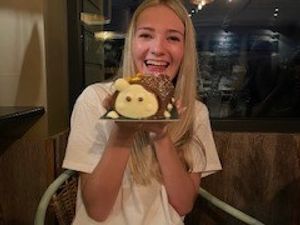Shirley Tart: A pioneer who had a heart of gold
She was simply the best – the one and only. Shirley Tart was a remarkable journalist, role model and person.
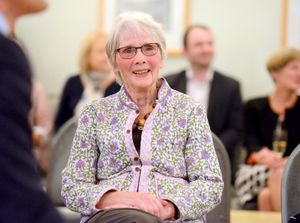
She retired in 2020 after 63 unbroken years.
“I’ve been there an awfully long time. I think it’s time,” said Shirley, whose long and glorious career made her a household name in the county.
Shropshire-born, Shropshire-bred, and Shropshire-educated, she told stories of royalty and the highest in the land, and gave voice to ordinary Salopians who have had their own fascinating tales to tell.
“I have thoroughly enjoyed meeting so many people, different people,” she said.

Her contribution was recognised in 2005 when in the Queen’s Birthday Honours she was awarded the MBE for services to the newspaper industry. “That was particularly special,” she recalled.
Away from the world of journalism Shirley was deeply involved in various aspects of Shropshire life, including helping launch the Hope House children’s hospice appeal and becoming the hospice’s first patron.
Just a few of her various other contributions were being a deputy lieutenant, a patron of the Ironbridge Gorge Museum, and county vice-president of Guiding.
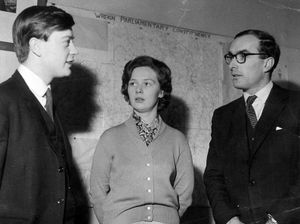
She was a founding member of the Shropshire branch of the Leukaemia Research Fund.
Shirley was a Shropshire Star pioneer, joining the founding staff of the then new paper as the team prepared for its launch in October 1964, becoming its first women’s editor, a role she held for the paper’s first 30 years.
She was to become royal correspondent for both the Star and Shropshire Magazine.
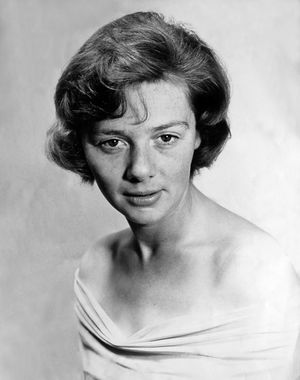
Speaking on her retirement, she said: “The very first big event I covered was in 1973, the Princess Royal’s first wedding at Westminster Abbey. I have been to every wedding, funeral, jubilee, and state occasion since, in London or Windsor. I am a great supporter of our monarchy. Given the alternative, it’s something that should be protected.”
Shirley’s own story began on July 21, 1941, her birthplace being a two-bedroom cottage, 17 Malinslee, a now disappeared home which stood between the disappeared community of Dark Lane, and Dawley.
The site of her early childhood was destined to be swallowed up by the development of Telford shopping centre.
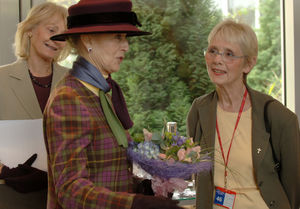
“I used to say I was born on Carrefour car park, but I can’t say that now, as Carrefour (Telford’s first big ‘hypermarket’) isn’t there any more,” she joked.
The family moved to Webb Crescent, Dawley, when she was 11, and her writing talents became apparent while she was a pupil at Coalbrookdale High School.
Her journalism career began on August 12, 1957, when Shirley, who had just turned 16, started working on the old Wellington Journal & Shrewsbury News in days when female journalists were very unusual.
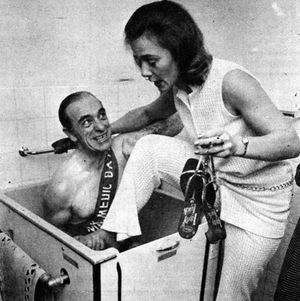
The weekly’s newspaper offices were in Queen Street, Wellington, but the reporters worked from a caravan at the back because of a lack of room.
And it was from there that she cut her teeth as a reporter, although initially she had neither shorthand or typing skills. At first she would cycle to work, but later got a moped.
Shirley’s five-year grounding at the Journal involved all the classic cub reporter jobs, including regular visits to the undertaker.
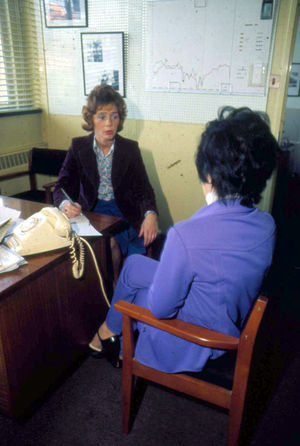
Looking to progress her career, she started applying for a job on the evening paper, the Express & Star – there was no Shropshire Star at the time. She kept writing to the editor, Clem Jones, and eventually he relented, saying he couldn’t stand her spending any more money on stamps.
Her first six months were covering undefended cases at Birmingham Divorce Courts, followed by a little spell in Stourbridge. It was all a preparation for a return to Shropshire, joining the brand new Shropshire Star at Ketley.
She said: “I was here from May 1964, because we were getting everything in place. It was just so exciting, fantastic, being at the beginning of anything new. I feel so privileged to have had all those opportunities, I can’t tell you. It’s just amazing.”

In 1994 she moved to Wolverhampton as assistant editor of sister paper the Express & Star, before coming back to Shropshire as associate editor of Shropshire Magazine.
Shirley has interviewed in her time everybody from Ken Dodd to Margaret Thatcher.
And her favourite interview?
Speaking in 2020, she said: “Wouldn’t you find that impossible to answer? Early on in my career we used to draw up names of people we would really like to interview. Two of the people on my list were Vera Lynn and Mother Teresa. Only a few years ago I interviewed Vera Lynn, which was a bit of icing on the cake.
Tributes:
"I didn’t get to interview Mother Teresa. She came to a big conference outside Birmingham and I said I would like a few words with her, and they said absolutely, but she was a bit late arriving, and then had to get back to the airport to catch her flight, so the interview fell by the wayside. In its lieu I had breakfast with the Dalai Lama.”
Sometimes interviews are memorable for the wrong reasons, and one of young Shirley’s early assignments was to grab an interview with Barbara Moore, a part-Russian doctor in her 60s who was on a marathon walk from John o’Groats to Land’s End during which she happened to pass through Wellington. She completely ignored all Shirley’s questions and kept walking, leaving her with an empty notebook.
“I was sure I was going to be sacked,” she joked.
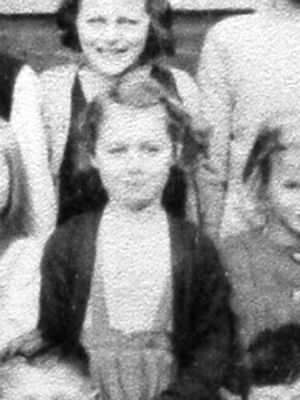
In a sparkling career the award of the MBE was a particular high point and she recalled that as she waited for the presentation at Buckingham Palace one of the staff asked her what she had been given the medal for.
She told him it was for representing newspapers and journalism.
“He looked at me in absolutely horror. He said: ‘My goodness, we don’t get many of those around here.’”
And the Prince of Wales (now King Charles), who had met Shirley on several previous occasions, presented her the honour, he joked: “Haven’t you retired yet?”
Fifteen years later, Shirley finally did retire, although she continued to contribute occasionally to the Star and kept up an avid interest in the newspaper.
She said: “We all try to make a difference in some small way, and if I have managed to achieve this through my job, I can really ask no more. I just consider myself ever so lucky to have been given the opportunity to tell the story of other people’s lives, and to have met such fascinating people.”
Shirley is survived by long-time friend Sally, her sister Jen, nieces and nephews and extended family.



